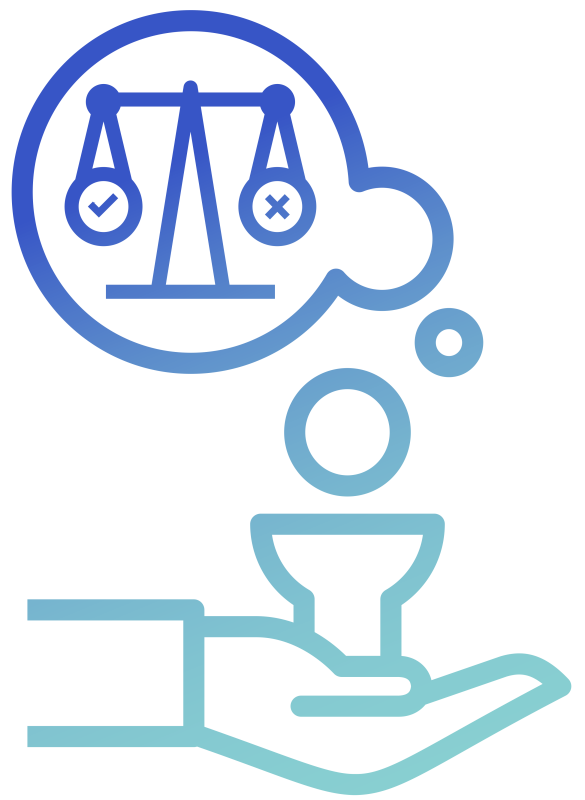Four Principles
The four principles approach was developed in the USA by Beauchamp and Children, in their book Principles of Biomedical Ethics. Since the first edition appeared in 1979, the framework has become widely known.
Whilst this approach is typically applied as a broad framework for ethical reasoning in medical ethics research and teaching, as Huxtable notes, the framework may also be useful to clinical ethics services.
As its name implies, the approach invites reflection on four ethical principles, which we have slightly adapted here, in order to make links with the work of Clinical Ethics Committees (CECs):
- Respect for autonomy: This principle means respecting the decision-making capacities of autonomous persons; enabling individuals to make reasoned informed choices. The principle is sometimes described in terms of respect for patients as persons, or in terms of respecting a person’s right to self-determination. Respect for autonomy requires the CEC to attend to the patient’s personal values and commitments in life, usually identified in expressions of their preferences. It also requires the CEC to consider the patient’s ability to make decisions, and, if the patient lacks the capacity to make the specific decision, what their preferences and values would likely point towards in this clinical scenario.
- Beneficence: This principle captures the requirement for the healthcare professional to act in a way that benefits the patient. It requires consideration of how best to balance the benefits of treatment against any risks and costs. The principle can work in tandem with the principle of non-maleficence.
- Non-maleficence: This principle requires the healthcare professional to do no harm to the patient. It has a long history, dating back at least to the Hippocratic injunction, “first, do no harm” (primum non nocere). All treatment is likely to involve some harm, even if minimal, but the harm should not be disproportionate to the benefits of treatment. The principles of beneficence and non-maleficence together capture the obligation to act for the overall benefit of a patient or patients. Adhering to these principles requires the CEC to think carefully about the beneficial and harmful consequences of potential treatment options from the perspective of the patient.
- Justice: There are many different accounts of what justice is and what it requires. Broadly, and especially in ethical issues within patient care, justice involves considering the fair distribution of benefits, risks and costs. It is focused on the idea that patients in similar positions should be treated in a similar manner. This principle requires the CEC to consider questions of fairness in the clinical scenario. CECs should be alert to considerations of formal and procedural justice (e.g., aspiring to consistency and having clear processes). Some consideration of different political philosophical theories of health justice will be required, as there are different ways to configure the requirements of justice or fairness across these theories. Sometimes specific questions of distributive justice will arise. A concern with justice in this sense recognises that the wider impact of choices should be considered in any decision. This might involve considering whether the options available impact unfairly on other patients and society at large.
Balancing the principles:
The principles are general guides, which leave considerable room for judgment in individual cases. Beauchamp and Childress recognise that there may be cases where the principles come into conflict. Indeed, we would go further; one commonly defining feature of an ethical issue in healthcare practice can be explained by a conflict between two overarching ethical principles – i.e., a genuine ethical dilemma, where it is simply not possible to do what one ought to do.
In these scenarios, Beauchamp and Childress recommend following a process of “reflective equilibrium”, which was first outlined by John Rawls in his book A Theory of Justice and is described in detail in Principles of Biomedical Ethics. As an overview, this method involves moving back-and-forth between moral beliefs and judgments, the principles, and background ethical theories, seeking to achieve coherence by bringing these different elements into balance.

Click here to download a PDF with further information about ethical frameworks, including worked-through examples of how each of the different frameworks would approach the ethical analysis of a case.
